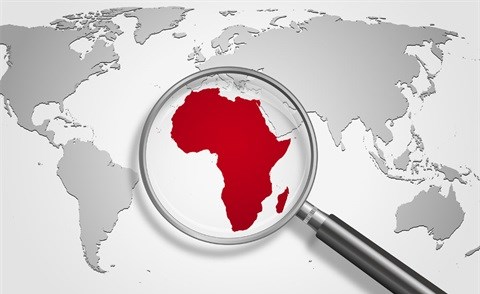
Top stories


Marketing & MediaWarner Bros. was “nice to have” but not at any price, says Netflix
Karabo Ledwaba 17 hours



Logistics & TransportMaersk reroutes sailings around Africa amid Red Sea constraints
Louise Rasmussen 9 hours

More news


















The apparent dearth of written historical records, owing to the slow adoption of writing technology and the humid environment that makes preservation difficult, meant that historians of Africa had to find alternative ways to unravel the continent's past. But since at least the 1960s, archaeology, linguistics, and oral histories all contributed to establish African history as one of the leading intellectual pursuits.
African economic history in particular thrived on the optimism of post-independence Africa. The rapid economic transformations of the late colonial and early post-colonial period led to an intellectual curiosity into the colonial and pre-colonial economic trajectories of indigenous societies.
In 1960, for example, the World Bank claimed that "the future for Africa is bright". Ideological battles between Marxists and liberals fuelled the debates.
But by the 1980s economic history took a back seat. This was at the same as African economies slowly ground to a halt. Also, intellectual movements in economics diverged towards more mathematical modelling, and in history towards cultural and social explanations.
The slumber remained until the early 2000s. Several prominent economists, now equipped with the tools of econometrics, revisited old ideas about the impact of slavery and colonialism. They explained how settler mortality rates influenced the institutional framework adopted in colonial societies. These institutions and their consequences for economic development persist to this day.
Using a large data set of slaves shipped to the Americas, another economist showed that regions that suffered most from the slave trade still have lower levels of development today.
Most recently, studies showed how the TseTse fly harmed the development of intensive farming in Africa, surplus production and trade. All three of these methodologically ground-breaking papers were published in economics journals.
Historians were slow to respond to these new developments. Their main critique was that economists "compressed history", linking events several centuries ago with outcomes today.
But the feathers were ruffled enough that a new generation of economic historians could take up the call and challenge the hypotheses of yesteryear. These economic historians were trained in the arts of statistics and archival sources.
And so came the renaissance of African economic history. In 2011, scholars mostly based in Sweden, England and the Netherlands created a new African Economic History Network.
In 2012, South Africa's Stellenbosch University hosted the World Economic History Congress, the first time it had been hosted on African soil. In 2014, the Economic History Review, one of the leading Economic History journals, published a special edition on African economic history.
And last week, the Laboratory for the Economics of Africa's Past was launched. The aim is to bring together scholars and students interested in understanding and explaining the long-term economic development of Africa's diverse societies.
The new African economic history is already challenging earlier wisdom. This includes precolonial and colonial Africa being more prosperous than previously thought.
There is also the knowledge that railways had profound effects, both positive and negative, on African societies. Also, settler farmers at the Cape of Good Hope attained standards of living as high as some of the wealthiest 18th-century societies.
And more research is on the way. The 2014 African Economic History meeting in London attracted more than 40 presenters in comparison to a dozen or so only three years ago. This year the event, to be held in Wageningen, the Netherlands, will have more than 60 presentations.
Unfortunately, few African universities are taking part in this revival. Of the 40 presenters in London last year, less than a handful were African. This is partly due to a lack of funding, not only to travel but to afford the painstaking digitisation and transcription of archival sources. It is also partly a methodological divide that meant African universities are more closely aligned to history than to the methods and techniques of economics.
Change will be slow, but the signs are positive. The 2015 African Economic History meetings in the Netherlands will have three times the number of African participants as the London meeting.
Poet Maya Angelou once said that: "No man can know where he is going unless he knows exactly where he has been and exactly how he arrived at his present place."
The most valuable contribution of the new African economic history so far has been to show that Africans have not always been poor, nor are current poverty levels an inevitable destiny. As Africa's economies are rising, so too is our understanding of its economic past. The Dark Continent is becoming a lighter shade of grey.![]()

The Conversation Africa is an independent source of news and views from the academic and research community. Its aim is to promote better understanding of current affairs and complex issues, and allow for a better quality of public discourse and conversation.
Go to: https://theconversation.com/africa